Thomas Mann House Events Archive
November 2024
"Citizenship As Political Membership: A Fundamental Strand of 20th and 21st Century European History"
UCLA Department of Sociology (264 Haines Hall 375 Portola Plaza Los Angeles, CA 90095-1551)
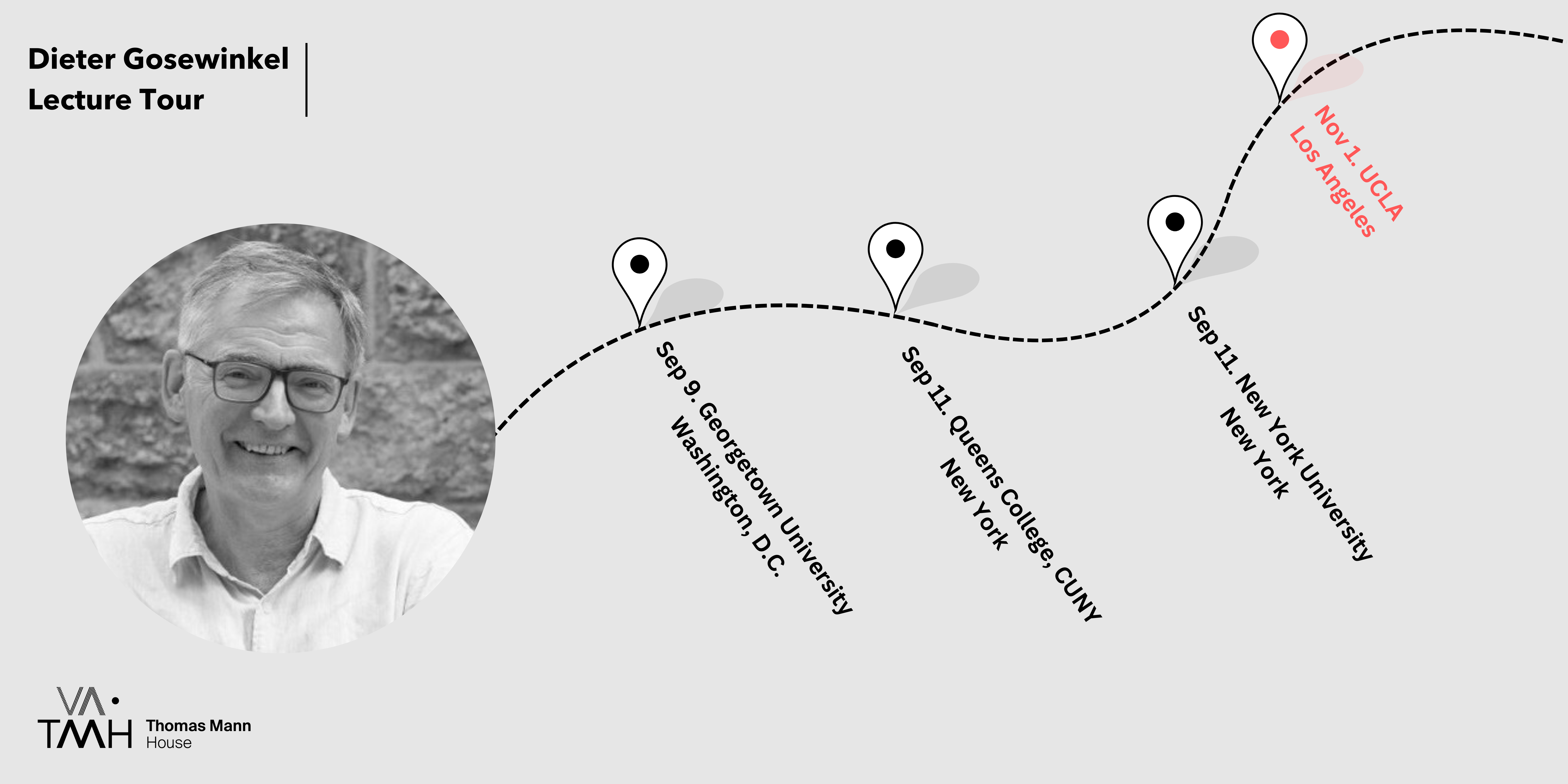
Information
As part of his 2024 Thomas Mann Fellowship, historian and lawyer Dieter Gosewinkel will give a lecture about the critical role of citizenship in 20th-century Europe as the primary marker of political affiliation. Professor Gosewinkel visited institutions such as Queens College (CUNY), Georgetown University, New York University, and UCLA.
In his lecture at UCLA, Dieter Gosewinkel discusses the importance of citizenship as the key form of political affiliation in 20th century Europe and how it remains central despite modern trends such as globalization and Europeanization. The importance attached to citizenship is what distinguishes the 20th century from previous historical periods and other forms of political affiliation (religious, party, ethnic, nation-state, and social class). With the democratization of political regimes, the expansion of participatory rights, the development of social welfare rights, and the increasing isolation of states from one another, citizenship began to grow in importance for the individual. Even the current processes of transnationalization, Europeanization, and globalization can bring about only gradual and inconsequential changes in the preeminence of citizenship, because the delineation of political membership and the distinction from non-membership remain the primary functions of the state, even as it increasingly loses its nation-state character.
Participant
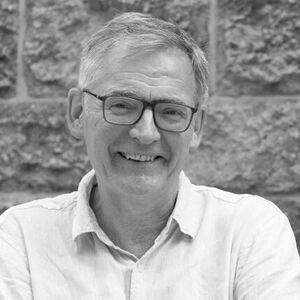
Dieter Gosewinkel is a historian and lawyer whose research focuses on European modern history and the history of citizenship, civil society, constitutional law, and European thought. From 2011 to 2021, he was co-director of the Center for Global Constitutionalism at the WZB Berlin Social Science Center, and is currently a Senior Research Fellow at the Hamburg Institute for Social Research. He also held a number of fellowships, including at the European University Institute in Florence, the Institut d'études avancées de Paris, and the University of Oxford. He has taught at Freie Universität Berlin, Sciences Po, Paris, and others.
Partners
The lecture tour is organized with Queens College (CUNY), Georgetown University, New York University, and UCLA.
Media, Artificial Intelligence and the Vulnerabilities of Democracy
Thomas Mann House Los Angeles (1550 N San Remo Drive, Pacific Palisades, CA 90272)

Information
Join the Thomas Mann House for this panel discussion convened by 2024 Thomas Mann Fellow, communication scientist Ulrike Klinger, with Julien Labarre, Assistant Professor of Political Science, CSU Dominguez Hills, Bruce Bimber, Distinguished Professor of Political Science, UC Santa Barbara, and Claes H. de Vreese, Distinguished Professor of Artificial Intelligence and Society, University of Amsterdam. The panelists will discuss the role of artificial intelligence and information in democracy from a transatlantic perspective.
The arrival of ChatGPT, Midjourney and Dall.E provided artificial intelligence for everyday use. Today, anyone can use generative AI to create texts or images from prompts – without tech expertise and on household devices. Journalists have used automated text production, and we increasingly see cases of AI use in political campaigns. How does this change how citizens get information, trust media, and think about reality? Will AI bring a surge of disinformation and deep fakes or help combat „fake news“ and hate speech? Can AI deepen political polarization and the erosion of the authority of democratic institutions? What role has AI played in the super-election year of 2024, with elections in over 60 countries worldwide?
The experts on the panel will discuss the good and bad of artificial intelligence, the role of information in democracy, and how democratic societies could and should regulate technology. Who acts through AI, and who is responsible for its effects on democracy? From a transatlantic perspective and informed by current academic research, they ask: Is democracy ready for AI?
Participants
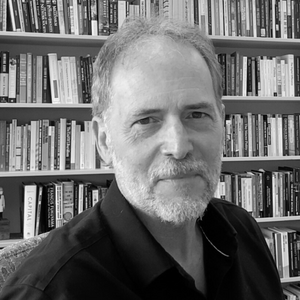
Bruce Bimber is Distinguished Professor of Political Science at UC Santa Barbara, where he studies how democracy is affected by computing and media environments. He has written extensively about how the Internet facilitates the formation of political groups both within the mainstream and at the extremes. In recent years, he has turned to the study of democratic erosion, focusing on the role of social media use in people's belief in conspiracy theories and in the spread of populist and illiberal attitudes. He is a Fellow of the American Association for the Advancement of Science and of the International Communication Association, and a past Fellow of the Center for Advanced Study in the Behavioral Sciences. He is currently working on the use of AI to analyze conspiracy theories and endorsements of political violence in social media.

Claes H. de Vreese is Distinguished University Professor of Artificial Intelligence and Society, with a special focus on media and democracy at the University of Amsterdam. He also holds the Chair in political communication at the Amsterdam School of Communication Research ASCoR. His research interests include the role of automation, algorithms, and artificial intelligence in democratic processes. This includes microtargeting, news recommenders, social media platforms, disinformation, comparative journalism research, the effects of news, and public opinion. He has published a dozen books and more than 250 articles. He is the recipient of the Swanson Career Achievement Award, the NeFCA Career Award, and he is an elected Fellow of the Royal Dutch Academy of Sciences, the International Communication Association, and the Royal Holland Society of Sciences.
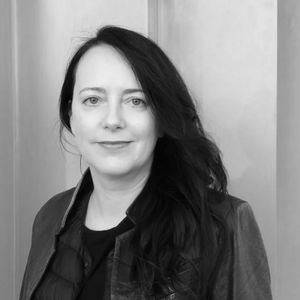
Ulrike Klinger is Professor for Digital Democracy and member of the Board of Directors of the European New School of Digital Studies at the European University Viadrina in Frankfurt/Oder. She is an associate researcher at the Weizenbaum Institute for the Networked Society in Berlin, where she led the research group “News, Campaigns, and the Rationality of Public Discourse” until 2020. She researches digital political communication, technology and power, and the transformation of digital publics.
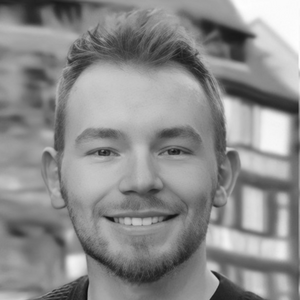
Julien Labarre is an Assistant Professor of Political Science at California State University Dominguez Hills and an affiliate of the International Panel on the Information Environment, a research initiative launched at the 2023 Nobel Prize Summit. He is also the former administrator of the Center for Information Technology & Society. His research focuses on mass media, epistemic problems, extremism, and pathologies of democracy, primarily in the US and France.
Artificial Intelligence, Epistemic Vulnerability, and Democracy
Thomas Mann House Los Angeles (1550 N San Remo Drive, Pacific Palisades, CA 90272)

Information
Following an introduction to the theoretical concept of epistemic vulnerability by Julien Labarre (2024), leading scholars from the greater LA area and Thomas Mann fellows will dive deeper into the current development of generative AI and its impacts on democracy. Epistemic vulnerability posits that the quasi-exclusive focus on deception downplays the role of other epistemic problems, such as distrust in the media, and the widespread disorientation of citizens in reaction to low quality information and media outlets that they perceive as untrustworthy. Epistemic vulnerability is not the same everywhere and for everyone. Studies show that Northern European countries seem more resilient than the US or Eastern European countries. Workshop participants will take a close look at these resilience factors and what we can learn from them in transatlantic comparison.
In two sessions, the workshop participants will discuss how AI can mitigate and deepen the effects of epistemic vulnerability, how the idea of ethical or responsible AI relates to this, and how scholars can study these developments empirically – in published texts, images and videos. This connects to problems of empirical research, such as data access and attacks on scholars in the field of disinformation studies.
Participants

Bruce Bimber is Distinguished Professor of Political Science at UC Santa Barbara, where he studies how democracy is affected by computing and media environments. He has written extensively about how the Internet facilitates the formation of political groups both within the mainstream and at the extremes. In recent years, he has turned to the study of democratic erosion, focusing on the role of social media use in people's belief in conspiracy theories and in the spread of populist and illiberal attitudes. He is a Fellow of the American Association for the Advancement of Science and of the International Communication Association, and a past Fellow of the Center for Advanced Study in the Behavioral Sciences. He is currently working on the use of AI to analyze conspiracy theories and endorsements of political violence in social media.

Claes H. de Vreese is Distinguished University Professor of Artificial Intelligence and Society, with a special focus on media and democracy at the University of Amsterdam. He also holds the Chair in political communication at the Amsterdam School of Communication Research ASCoR. His research interests include the role of automation, algorithms, and artificial intelligence in democratic processes. This includes microtargeting, news recommenders, social media platforms, disinformation, comparative journalism research, the effects of news, and public opinion. He has published a dozen books and more than 250 articles. He is the recipient of the Swanson Career Achievement Award, the NeFCA Career Award, and he is an elected Fellow of the Royal Dutch Academy of Sciences, the International Communication Association, and the Royal Holland Society of Sciences.

Ulrike Klinger is Professor for Digital Democracy and member of the Board of Directors of the European New School of Digital Studies at the European University Viadrina in Frankfurt/Oder. She is an associate researcher at the Weizenbaum Institute for the Networked Society in Berlin, where she led the research group “News, Campaigns, and the Rationality of Public Discourse” until 2020. She researches digital political communication, technology and power, and the transformation of digital publics.

Julien Labarre is an Assistant Professor of Political Science at California State University Dominguez Hills and an affiliate of the International Panel on the Information Environment, a research initiative launched at the 2023 Nobel Prize Summit. He is also the former administrator of the Center for Information Technology & Society. His research focuses on mass media, epistemic problems, extremism, and pathologies of democracy, primarily in the US and France.
The Virtue and Limits of Political Compromise in Liberal Democracies
Thomas Mann House Los Angeles (1550 N San Remo Drive, Pacific Palisades, CA 90272)

Information
The workshop brings together political scientists and political activists to discuss the ambivalence of political compromise in times of increasing polarization. The focus lies on different aspects of political compromise for liberal democracies:
(1) What are the preconditions for political compromise?
(2) What can be gained from compromise, but also what are the limits of compromise?
(3) And finally, how can institutions and individuals create an environment that is conducive to compromise?
Programs
Thursday, November 21
Why and when should we engage in compromise?
The first session clarifies what a political compromise is, what the main features of a compromise look like, and why the ability to compromise might (or might not) lie at the heart of liberal democracies. In heterogeneous and pluralistic societies, compromise is not only a necessary feature of political life, but it can be argued that the acceptance of political rivals as having legitimate interests leads to a self-reinforcing dynamic that underpins democratic processes.
Friday, November 22
When should we not engage in compromise?
The second session looks at the limits of compromise, exploring the proverbial “rotten” compromise to ask when we should shy away from forging compromises. This includes reflections on the question of freedom of speech, and to what extent populism impedes our ability to find compromise.
How do the United States and Germany deal with compromise and polarization?
The third session explores the differing way in which political compromise is built into the different political systems of the United States and Germany, comparing two different ways these political systems react and maybe even produce societal polarization.
How to create a conducive environment for political compromise?
The last session discusses what conducive environments could look like that foster political compromise. What makes political compromise more likely? What hinders it?
Participants
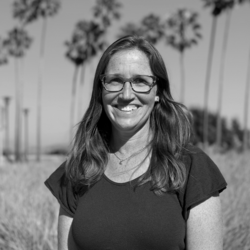
Sarah E. Anderson is a Professor and Acting Dean at the Bren School of Environmental Science & Management at the University of California, Santa Barbara. She studies how the public and politics influences policy. In her 2020 book Rejecting Compromise: Legislators’ Fear of Primary Voters, she focuses on how the public drives inequity and inefficiency in agencies’ wildfire prevention and why legislators reject compromise. In her research, teaching, and service, she works with students, staff, faculty, communities, and leaders to overcome social and political barriers to solving environmental problems and to work toward equity in the environmental field.
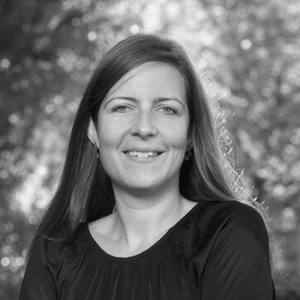
Pola Lehmann is a research fellow at the WZB Berlin Social Science Center and co-director of the Manifesto Project. She studied administrative sciences at the Universities of Potsdam and Copenhagen. Her research focuses on democracy and political representation, political parties and elections, and machine learning. In her dissertation, which won the Leibniz Dissertation Award in 2021, she investigated political representation and compromise in the German Bundestag.
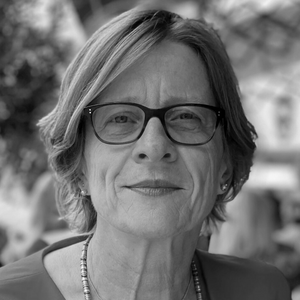
Alexandra Lieben is the Deputy Director of the Ronald W. Burkle Center for International Relations and an affiliated faculty member of the Promise Institute for Human Rights at the UCLA School of Law. A certified mediator, she teaches constructive communication, alternative dispute resolution, public dialogue, cultural competency, international conflict resolution, and community and economic development to undergraduate and graduate students at UCLA.
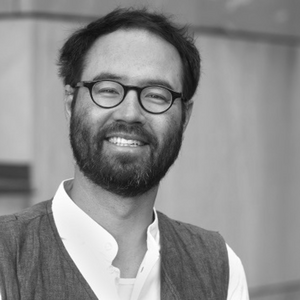
Johannes Gerschewski is a research fellow at the WZB Berlin Social Science Center and coordinates the work of the Theory Network at the Cluster of Excellence “Contestations of the Liberal Script (SCRIPTS).” He has published in academic journals including American Political Science Review, Perspectives on Politics, and Comparative Political Studies. His book on The Two Logics of Autocratic Rule was published in April 2023 by Cambridge University Press.
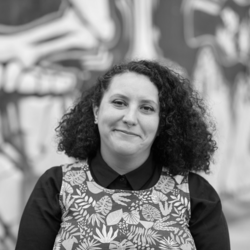
Natalie M. Godinez is an educator and artist raised in Tijuana, México. Godinez has collaborated with AMBOS since 2017, performing artist interventions, leading education projects, and coordinating humanitarian aid efforts. Currently, she is the Community Engagement & Youth Programs Manager at Self Help Graphics and Art, working on advocacy, youth programming, and cultural organizing. In her personal art practice, she explores memories, identity, and relationships to places and language through textiles, printmaking, and collaboration. She holds a Bachelor's degree in Applied Design from San Diego State University.

Allison Lee serves as PEN America’s Los Angeles Director. She was the Chief Development Officer for TIME’S UP, a non-profit organization dedicated to promoting gender equity and ending sexual violence in the workplace. She has previously served as Vice President of External Affairs at Bet Tzedek Legal Services, where she worked, among other things, to launch their Rapid Response Family Immigration Project and Transgender Advocacy Program. Prior to that, Allison served for eight years as the founding Executive Director of American Jewish World Service – Southern California. Allison received her B.A. in Political Science and American Studies from Tufts University.
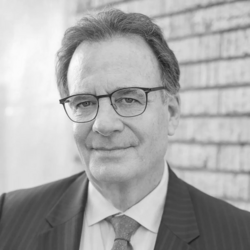
Jonathan Parfrey is the founder and Executive Director of Climate Resolve, and has served as a commissioner at the Los Angeles Department of Water and Power (2008-2013). Parfrey is a member of the LA28 Olympics and Paralympic Games Sustainability Working Group. He is a founder and board member of CicLAvia, the popular street event, as well as a founder of the statewide Alliance of Regional Collaboratives for Climate Adaptation. He served as director of the GREEN LA Coalition (2007-2011). Prior to that, he founded and directed the Orange County Catholic Worker (1987-1993). He was appointed to Governor Schwarzenegger’s Environmental Policy Team in 2003.
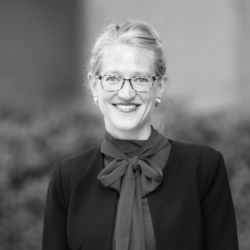
Danielle M. Thomsen is Associate Professor of Political Science at the University of California, Irvine, with a focus on American politics, Congress, elections, campaign finance, and gender and politics. Thomsen’s first book Opting Out of Congress: Partisan Polarization and the Decline of Moderate Candidates was published in 2017, and her second publication The Money Signal: How Fundraising Matters in American Politics is forthcoming with the University of Chicago Press in Spring 2025. Her research has been published in the American Political Science Review, Journal of Politics, Legislative Studies Quarterly, Perspectives on Politics, among others.
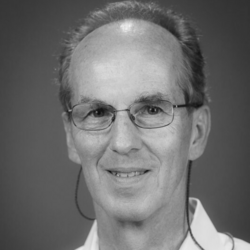
Kurt Weyland is Professor of Government and Mike Hogg Professor in Liberal Arts at the University of Texas at Austin. Based on research conducted in Argentina, Bolivia, Brazil, Chile, Costa Rica, Peru, and Venezuela, he has published many journal articles and book chapters, as well as seven books, most recently Assault on Democracy: Communism, Fascism, and Authoritarianism during the Interwar Years (Cambridge, 2021); and Democracy’s Resilience to Populism’s Threat (Cambridge, 2024).

Thomas Aujero Small is the CEO of Culver City Forward, Chair of LA METRO Sustainability Council and member of the Mobility Committee of the Urban Land Institute Los Angeles. He served as Mayor of Culver City from 2018-2019, during his four-year term as a Culver City Council Member (2016-2020). He is also on the Transportation Policy Committee of the Southern California Association of Governments (SCAG). On the Culver City Council, he served on several Subcommittees, including: the General Plan Update; Economic Development; Mobility, Traffic and Parking; Financial Planning and Budget; and the Ballona Creek Revitalization Task Force.
Populists and the Forgotten Value of Compromise
Thomas Mann House Los Angeles (1550 N San Remo Drive, Pacific Palisades, CA 90272)

Information
Join the Thomas Mann House for this roundtable discussion convened by 2024 Thomas Mann Fellows Pola Lehmann and Johannes Gerschewski, with Allison Lee, director of PEN America Los Angeles, Thomas Aujero Small, CEO of Culver City Forward, and Kurt Weyland, Professor of Government and Mike Hogg Professor in Liberal Arts at the University of Texas. The panelists will discuss the value of political compromise in democracy from a transatlantic, post-election perspective.
The US elections have left a polarized society. Regardless of personal views on the outcome, the electoral campaigns have severely deepened societal divisions. Over the past years, public debates about the Covid-19 pandemic, immigration or social inequality have become increasingly polarized. Political positions are irreconcilably opposed, becoming more and more heated and unforgiving. Discussions are fueled by the depiction of different sides as representing “right” or “wrong” answers. Have we lost sight of the value of compromise?
Certainly, one of the greatest strengths of democracy is the ability to reach political compromises. In heterogeneous societies, compromise is necessary. However, the ability to allow agreement and make concessions on the most pressing social issues has diminished in recent years. Each side denies the other legitimate opposition and different views on the issues at stake. Populists play on the idea that there is only one will of the people and that they are the only ones that can represent this will. Instead, compromises are seen as signs of weakness. This represents a major Achilles' heel for heterogenous and pluralistic societies, both in the United States and Germany.
Of course, finding compromise is not a panacea for all types of problems. While it represents a technique for peaceful conflict resolution that pragmatically advances the status quo, there are also limits that should be taken into account, particularly when authoritarian populists put democracy under pressure. When do we reach limits of compromise and when should we rather remain firm on liberal and democratic principles? When does compromise even backfire, legitimizing a refutable political position?
This roundtable discussion brings together political scientists and political activists to discuss the ambivalence of political compromise in times of increasing polarization. It focuses on current challenges imposed on democracies by populists and discusses how populists prevent compromise, while also debating when and where liberal democracies need to draw a line and limit compromise.
Participants

Pola Lehmann is a research fellow at the WZB Berlin Social Science Center and co-director of the Manifesto Project. She studied administrative sciences at the Universities of Potsdam and Copenhagen. Her research focuses on democracy and political representation, political parties and elections, and machine learning. In her dissertation, which won the Leibniz Dissertation Award in 2021, she investigated political representation and compromise in the German Bundestag.

Johannes Gerschewski is a research fellow at the WZB Berlin Social Science Center and coordinates the work of the Theory Network at the Cluster of Excellence “Contestations of the Liberal Script (SCRIPTS).” He has published in academic journals including American Political Science Review, Perspectives on Politics, and Comparative Political Studies. His book on The Two Logics of Autocratic Rule was published in April 2023 by Cambridge University Press.

Allison Lee serves as PEN America’s Los Angeles Director. She was the Chief Development Officer for TIME’S UP, a non-profit organization dedicated to promoting gender equity and ending sexual violence in the workplace. She has previously served as Vice President of External Affairs at Bet Tzedek Legal Services, where she worked, among other things, to launch their Rapid Response Family Immigration Project and Transgender Advocacy Program. Prior to that, Allison served for eight years as the founding Executive Director of American Jewish World Service – Southern California. Allison received her B.A. in Political Science and American Studies from Tufts University.

Kurt Weyland is Professor of Government and Mike Hogg Professor in Liberal Arts at the University of Texas at Austin. Based on research conducted in Argentina, Bolivia, Brazil, Chile, Costa Rica, Peru, and Venezuela, he has published many journal articles and book chapters, as well as seven books, most recently Assault on Democracy: Communism, Fascism, and Authoritarianism during the Interwar Years (Cambridge, 2021); and Democracy’s Resilience to Populism’s Threat (Cambridge, 2024).

Thomas Aujero Small is the CEO of Culver City Forward, Chair of LA METRO Sustainability Council and member of the Mobility Committee of the Urban Land Institute Los Angeles. He served as Mayor of Culver City from 2018-2019, during his four-year term as a Culver City Council Member (2016-2020). He is also on the Transportation Policy Committee of the Southern California Association of Governments (SCAG). On the Culver City Council, he served on several Subcommittees, including: the General Plan Update; Economic Development; Mobility, Traffic and Parking; Financial Planning and Budget; and the Ballona Creek Revitalization Task Force.




